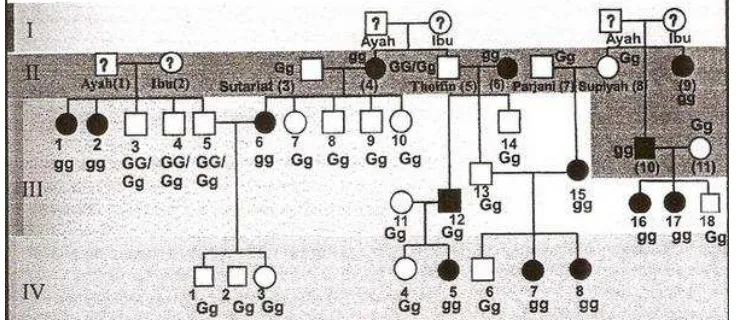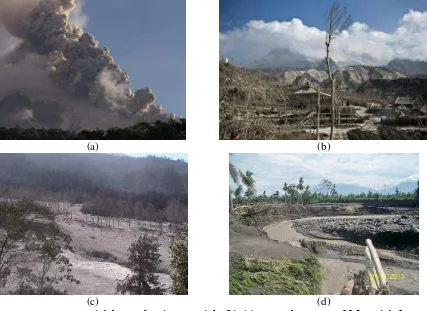Mathematics Education
CoSMEd
2011 Penang, Malaysia
15 – 17 November 2011
1
Socioscientific Issues and its Potency on Biology Instruction for Character
Education in Indonesia
Agung W. Subiantoro
Universitas Negeri Yogyakarta, Indonesia
Abstract
Character education which is being implemented in Indonesia gives more challenges on developing broader biological instruction contexts. It is urgently required not only for mastering biological concepts and improving scientific process skills, but also for developing values and moral reasoning that is relevant to socio-cultural context. Socio-scientific issues (SSI)-based instruction seems appropriate for fulfilling these needs. This is an analysis study that aims to probe the potency of two local-based cases correspond to the requirement of issues for conducting SSI-based instruction that should be based on socio-cultural background in Indonesia.
Keywords: socio-scientific issues, biology instruction, character education
Introduction
In 2010, The Indonesian Ministry of Education proclaimed the vision of “Character Education” as a national education development framework in Indonesia for the next fifteen years. Collective egoism, socio-cultural conflicts and discrepancy, breakdown of moral community (Suyata, 2011), and the declining of the quality of human resources and competitiveness, can be seen as a depletion of nations character. These are viewed as strong reasons why the policy should be implemented.
As Berkowitz stated, character is bound to function on morality which is stated as “Moral Anatomy”, that provides the ability for someone to distinguish good or bad on something to be done. Character consists of moral values, moral reasoning, moral emotion, moral identity, and meta-moral characteristics (Zeidler and Sadler, 2008). It concerns values, conscience, and emotive considerations. Meanwhile, character education is teaching about basic human values, including honesty, kindness, generosity, courage, freedom, equality, and respect. The goal is to raise children to become morally responsible and self-disciplined citizens (Berkowitz and Bier, 2005).
2 and making appropriate decision due to socio-cultural and environmental problems (Prasetyo, 2011).
Indonesian National Curriculum (Kurikulum Tingkat Satuan Pendidikan) provides opportunities for every school to develop and fulfill its instructional needs based on physical and socio-cultural background in order to attain the curriculum goals, particularly in science. Probing and choosing relevant evidence, data, or information in order to solve daily life problems is one of the goals of science education in Indonesian. This can be seen as scientific literacy (Carin, 1997; Jones, et. al, 2010) which requires the ability to confirm, negotiate, and decide in solving a problem that links between social issues and scientific concepts (Fowler, et. al, 2009).
Indonesia is a multicultural country with its plurality on ethnicity, socio-culture, and geophysical characteristic that could affect science education. The Eastern part of Indonesia, Papua for example, is quite different to Java in term of natural resources diversity, society (ethnicity), culture, and their habit of thinking.
It is a big challenge in implementing character education in Indonesia for each subject, including biology. Unfortunately, development of instructional model that could promote character education has not been developed. Hence, innovation in model of instruction that is useful for character education in relation to variety of socio-cultural background in Indonesia becomes crucial.
Socio-scientific issues (SSI)-based instruction provides a forum for contextualized use of argument-based pedagogies that provide settings for students’ exploration of moral issues (Zeidler & Sadler, 2008). Besides decision making, the ability to analyze, synthesize and evaluate information, SSI is also dealing with development of moral reasoning and ethical issues, as well as awareness of the interdependency between science and society (Zeidler, at. al, 2005; Nuangchalerm, 2010) and allows students to be involved as active citizens (Jones, et. al, 2010). It seems that SSI-based instruction is fit to fulfilling the needs of an instruction model for character education in Indonesia.
Issues such as global climate change, genetic engineering, alternative energy, stem cell research, sustainable development, food and energy resources, population control (Fowler, et. al, 2009; Dawson & Venville, 2010) can be considered as SSI from variety of perspectives. Contextually in Indonesia, it is essential to find and analyze issues which are appropriate both for conducting SSI-based instruction and fulfilling the curriculum needs based on socio-cultural background. Therefore, this is an analysis study concerning two cases that are potentially appropriate to SSI and contextualized in Indonesia.
Discussion
“Dreadlocks-hair” in Wonosobo, Central Java
They are not Bob Marley followers rather naturally happened to children in Wonosobo society, in Central Java, Indonesia. During their childhood, children may be
naturally experienced the “dreadlocks hair” and an interesting shaving-ritual is been done to
relieve it. The ritual contains spiritual, historical and philosophical values for Wonosobo society and stated as a cultural identity. Some traditional offering, such as rice, coins, eggs, or flowers, and invocation are involved in the ritual. These constitute symbols and the way of representation their belief system.
3
1) the “dreadlocks-hair” appears when children are 1-3 years-old and begins with a
fever. People of Wonosobo believe that the phenomenon is a revelation from their ancestor.
2) not just shaving it, the ritual is believed as an effort not only to preclude calamity for children, but also to bring blessing for them.
3) the parents are sure that if their children willingness is not filled on the shaving ritual, children will get affliction in the future.
4) the “dreadlocks-hair” would not happen again after the shaving ritual and the appeal
of the children has been obeyed.
As a believe system, these facts seems difficult to understand from scientific
perspective. However, “dreadlocks hair” is actually a biological phenomenon in terms of
genetic problem. It is revealed that the case is inherited by recessive autosome gene (Suratsih, 2009), as we can see from the pedigree below.
Figure 1. The pedigree of a “dreadlocks-hair” family in Wonosobo (Suratsih, 2009)
Merapi Mountain Eruption in Central Java
At the end of October 2010, ashes rain happened massively for three days and masses of dark dust remained on the streets or roofs. It was caused by Merapi mountain eruption which occurred in Central Java, Indonesia.
4
(a) (b)
(c) (d)
Figure 2. (a) Merapis’ hot volcanic material, (b)-(c) great damages of Merapis’ forest caused by hot volcanic materials, (d) shifting of land and river condition.
5
The Cases and Character Education in Indonesia
Problems that emerged from the “dreadlocks-hair” and Merapi mountain eruption
cases consist of conflict potencies that relevant to SSI. Scientific evidence about trait inheritance of the “dreadlocks-hair” seems to clash with a belief system that is maintained tightly by Wonosobo people. Similar to the aforementioned conflict, traditional reasoning of dependency to the nature that is held by people of Merapi is hard to understand from scientific attitude. Moreover, both remaining problems, conservation and water resource needs, provide conflict of prominence between communities that must be solved wisely.
The conflicts are strongly appropriate for SSI framework where students are exposed to those moral problems that involve a discrepant between scientific evidences or attitude and social or moral viewpoints. Furthermore, there is an opportunities to reflect the issues in order to evaluate claims, evidence analysis, and assess the viewpoints through social interaction and discourse (Zeidler, et.al, 2009).
Regarding character education in Indonesia, traditional knowledge involvement, such as shaving ritual and endurance of disaster risk, may provide strong effort for development of moral reasoning and reflective judgment ability for students. Those abilities are quite essential in order to analyze their position in their own society considering internalization and representation of moral problems and recognition of individual, group and cultural values for socio-cultural identity formation (Zeidler, et.al, 2009). In this term, the cross-cultural perspective, multicultural perspectives, and pluralist perspective, as three models for interrelating science and indigenous knowledge (Waiti & Hipkins, 2002) seem useful to be utilized in the biology instruction.
Conclusion
This analysis study has shown that both of the “dreadlocks-hair” and Merapi
mountain eruption cases provide potential problems that can be used in socio-scientific issues-based instruction, especially in biology. Moreover, these problems present conflicts between scientific reasoning and traditional belief system specially occurred in Indonesia. Students could develop their moral reasoning and reflective judgment ability in order to implement values and character education.
References
Berkowitz, Marvin W & M. J. Bier. (2005). What Works in Character Education, A Research-driven Guide for Educators. Washington: Character Education Partnership. Carin, Arthur A. (1997). Teaching Science Through Discovery, 8th edition. Ohio: Merrill
Publ. Co.
Dawson, Vaille & G. Vanville. (2010). Socioscientific Issues, Argumentation and Conceptual Understanding in High School Genetics. In Cakmakci, G & M.F. Tasar (Eds). Contemporary Science Education Research: Science Literacy and Social Aspects of Science. Turkey: PEGEM Akademi.
Fowler, Samantha. R., et. al. (2009). Moral Sensitivity in the Context of Socioscientific Issues in High School Science Students. International Journal of Science Education, 31 (2), 279-296.
6
Nuangchalerm, Prasart & Boonpeng K. (2010). Teaching “Global Warming” through
Socioscientific Issues-based Instruction. Journal of Asian Social Science, 6 (8), 42-47. Prasetyo, Zuhdan K. (2011). Pendidikan Karakter dalam Pendidikan Sains. dalam D. Zuchdi
(ed), Pendidikan Karakter dalam Perspektif Teori dan Praktik. Yogyakarta: UNY Press.
Subiantoro, Agung W. (2011). Erupsi Merapi dan Potensi Pengembangan Bahan Ajar Biologi Berbasis Representasi. Prosiding Seminar Nasional Biologi VIII, Prodi Pendidikan Biologi FKIP UNS, Surakarta, Indonesia.
Suratsih, et.al. (2009). Pengembangan Modul Pembelajaran Genetika Berbasis Fenomena Lokal. Cakrawala Pendidikan Jurnal Ilmiah Pendidikan, 2, Th XXVIII, 165-176. Suyata. (2011). Pendidikan Karakter: Dimensi Filosofis. dalam D. Zuchdi (ed), Pendidikan
Karakter dalam Perspektif Teori dan Praktik. Yogyakarta: UNY Press.
Triatmanto. (2010). Tantangan Implementasi Pendidikan Karakter di Sekolah. Cakrawala Pendidikan, Jurnal Ilmiah Pendidikan, edisi Khusus Dies Natalis UNY.
Waiti, Paulin & R. Hipkins. (2002). Cultural Issues that Challenge Traditional Science Teaching. Paper presented at the Third Annual New Zealand Science Education Symposium, Massey University, Wellington (http://www.nzcer.org.nz/pdfs/12618.pdf) Zeidler, Dana. L., et. al. (2005). Beyond STS: A Research-Based Framework for
Socioscientific Issues Education. Journal of Science Education, 89, 357-377.
Zeidler, Dana L., Troy D. Sadler. (2008). The Role of Moral Reasoning in Argumentation: Conscience, Character and Care. in Erduran, S. & Aleixandre M.P. Jimenez (eds). Argumentation in Science Education. Netherlands: Springer.
Zeidler, Dana L., et.al. (2009). Advancing Reflective Judgment through Socioscientific Issues. Journal of Research in Science Teaching, 46 (1), 74-101.
Author:
Agung W. Subiantoro, Dept. of Biology Education,

